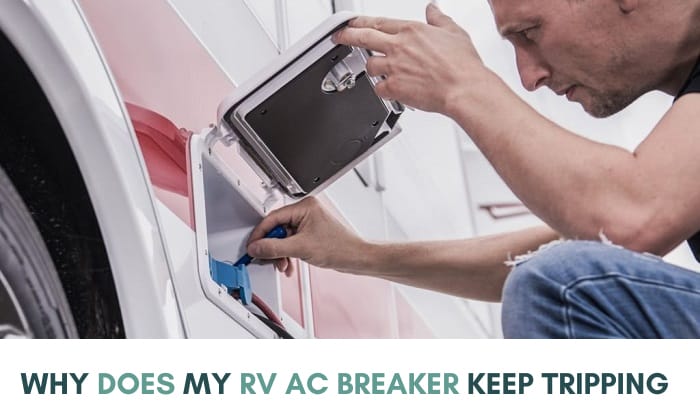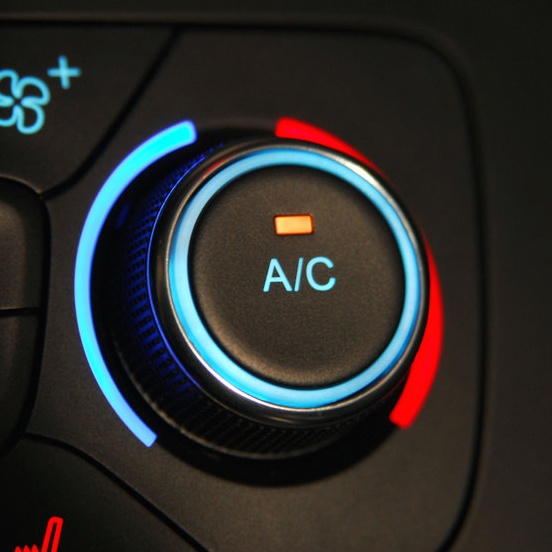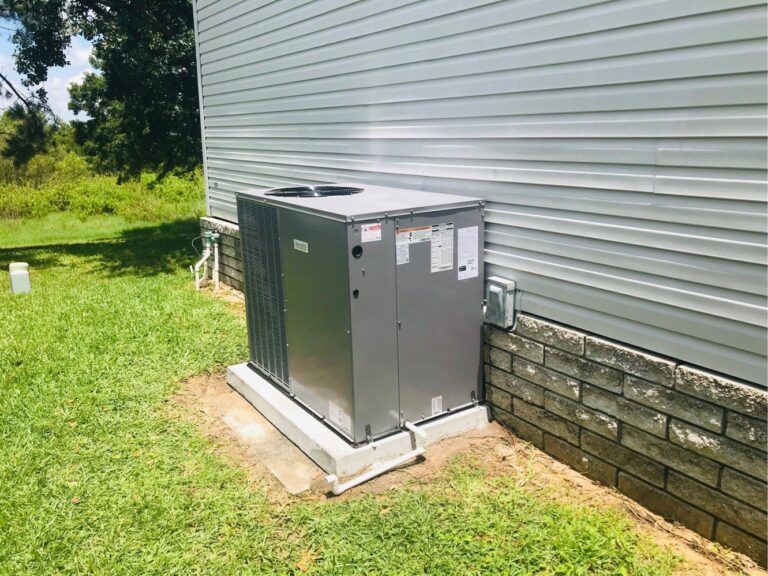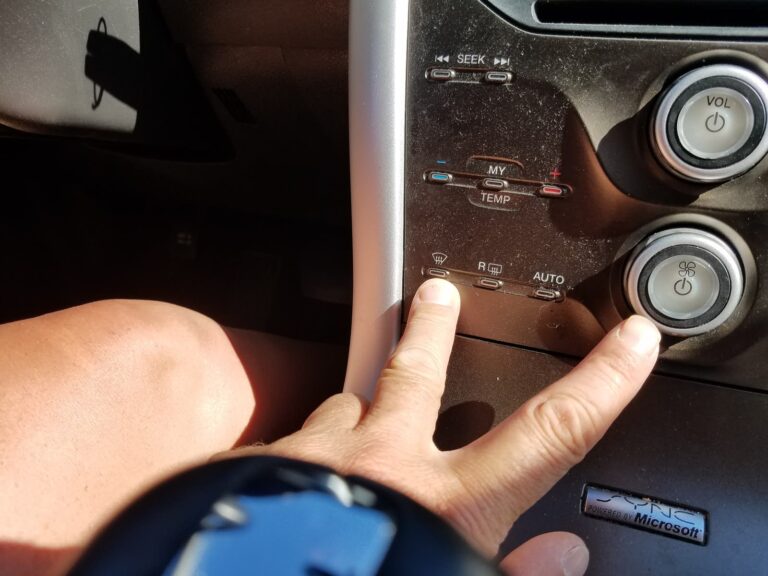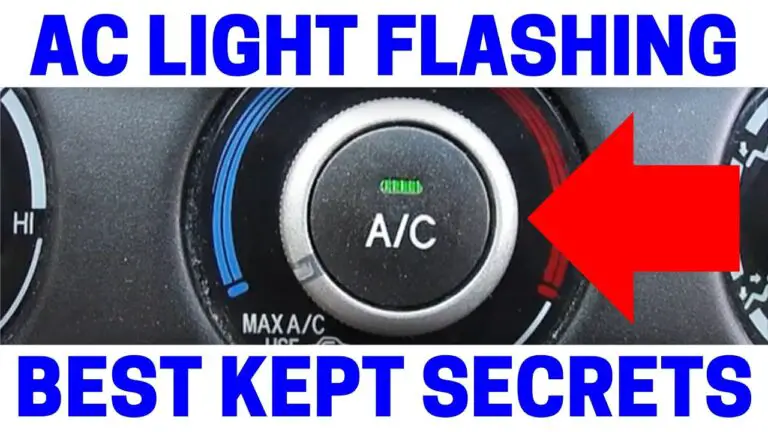Why Does My RV AC Keep Tripping the Breaker? Find the Solution!
If your RV AC keeps tripping the breaker, it could be due to an overloaded breaker, a dirty air conditioning unit, a blown-out AC fuse, a grounded compressor, a damaged capacitor, a short-circuited AC motor, or a broken circuit breaker.
Common Causes For Rv Ac Breaker Tripping
Is your RV AC breaker constantly tripping? There are several common causes for this issue, including an overloaded breaker, dirty AC unit, blown-out fuse, grounded compressor, faulty capacitor, short-circuited motor, or a broken circuit breaker. It’s best to consult a qualified electrician to diagnose and repair the problem.
Trips repeatedly, it can be frustrating and inconvenient, especially when it comes to your RV’s AC unit. Understanding the common causes for RV AC breaker tripping can help you troubleshoot and resolve the issue quickly, so you can enjoy cool air in your RV without any interruptions.
Overloaded Breaker:
- Running multiple appliances simultaneously can overload the RV’s breaker, causing it to trip.
- To avoid this, try to limit the use of other high-energy appliances when the AC is running.
- Consider investing in a higher amp breaker if you frequently experience overloads.
Dirty Air Conditioning Unit:
- A dirty air conditioning unit can put extra strain on the AC compressor, potentially leading to a tripped breaker.
- Regular maintenance, including cleaning the AC unit and changing filters, can prevent this issue.
- Ensure that the area around the AC unit is clear of debris to promote better airflow.
Blown-Out Ac Fuse:
- A blown-out AC fuse can be the culprit behind a tripped breaker.
- Check the fuse box and replace any blown fuses with the correct amperage rating to resolve the issue.
- Be mindful of any electrical faults or power surges that may have caused the fuse to blow.
Grounded Compressor:
- A grounded compressor, where the electrical connection is faulty, can cause the breaker to trip.
- This issue often requires professional repair or replacement of the compressor to resolve the problem.
Damaged Or Faulty Capacitor:
- A damaged or faulty capacitor can disrupt the electrical flow within the AC system, resulting in a tripped breaker.
- Inspect the capacitor for any visible signs of damage, such as bulging or leaking.
- If the capacitor is faulty, it will need to be replaced by a qualified technician.
Short-Circuited Ac Motor:
- A short-circuited AC motor can cause the breaker to trip as it draws excessive current.
- This issue typically requires professional assistance to repair or replace the motor.
Broken Circuit Breaker:
- A broken circuit breaker itself can cause frequent tripping.
- Consult a professional electrician to inspect and replace the breaker if necessary.
By understanding these common causes for RV AC breaker tripping, you can diagnose and address the issue effectively. Remember, safety should always be a priority when working with electrical systems, so if you’re unsure or uncomfortable, it’s best to seek professional help.
Stay cool and enjoy your RV adventures without any AC interruptions!

Credit: m.youtube.com
Troubleshooting Steps To Address The Issue
If your RV AC keeps tripping the breaker, there are several troubleshooting steps you can take. Check for overloaded breakers, dirty AC units, blown AC fuses, grounded compressors, faulty capacitors, short-circuited AC motors, or broken circuit breakers. Seek professional help if needed.
:
If your RV AC keeps tripping the breaker, it’s important to address the issue promptly to ensure your comfort during your travels. Here are some troubleshooting steps you can take to identify and resolve the problem:
- Check for an overloaded breaker: Make sure that the circuit breaker is not overloaded with too many appliances or devices. Overloading can cause the AC to trip the breaker.
- Redistribute appliances and devices onto different circuits: If you find that the breaker is overloaded, redistribute your appliances and devices onto different circuits to distribute the electrical load more evenly.
- Consider upgrading the system if it doesn’t have enough circuits for modern demands: If you frequently experience tripped breakers due to a lack of circuits, consider upgrading your RV’s electrical system to accommodate the demands of modern appliances and devices.
- Clean the air conditioning unit: Over time, debris and dust can accumulate in the air conditioning unit, affecting its performance. Regularly clean the unit to ensure proper airflow.
- Remove debris and dust from the coils and filters: The coils and filters of the AC unit can become dirty, obstructing airflow and causing the breaker to trip. Remove any debris or dust from these components to improve efficiency.
- Ensure proper airflow: In addition to cleaning the unit, make sure that there are no obstructions blocking the airflow, such as furniture or curtains. Proper airflow is essential for the AC to function optimally.
- Replace a blown-out AC fuse: If the AC fuse is blown, it can cause the breaker to trip. Follow the manufacturer’s instructions for fuse replacement to ensure proper installation.
- Test for a grounded compressor: A grounded compressor can also cause the breaker to trip. Consult a professional to test for a grounded compressor and make any necessary repairs.
- Look for signs of electrical damage or wear: Inspect the AC unit for any signs of electrical damage or wear. This can include frayed wires, burnt parts, or other visible issues. If you notice any damage, seek professional assistance for repair or replacement.
- Check the capacitor for damage or faults: The capacitor is a vital component of the AC unit. Check it for any damage or faults, and replace it if necessary.
- Inspect the AC motor for short-circuits: Short-circuits in the AC motor can cause the breaker to trip. Look for any signs of burnt or frayed wires and seek professional assistance for repairs.
- Replace a broken circuit breaker: If none of the above troubleshooting steps resolve the issue, it could be a faulty circuit breaker. Follow the manufacturer’s instructions for breaker replacement, ensuring the correct installation for a reliable electrical system.
Remember, if you’re unsure about performing any of these troubleshooting steps yourself, it’s always best to consult a professional for assistance. By addressing the issue promptly, you can enjoy uninterrupted cooling in your RV and make the most of your travels.
Preventive Measures For Avoiding Ac Breaker Tripping
To prevent your RV AC from constantly tripping the breaker, make sure to avoid overloading the breaker, clean the unit regularly, check for blown fuses, ensure the compressor is not grounded, inspect the capacitor for damage, and replace any faulty circuit breakers.
Taking these preventive measures can help avoid AC breaker tripping and ensure the smooth operation of your RV AC.
Perform regular maintenance on the RV AC unit:
- Schedule regular maintenance checks for your RV AC unit to ensure it is functioning properly.
- Inspect for any signs of wear and tear, such as loose wires or damaged components.
- Lubricate moving parts to prevent friction and extend the life of the unit.
- Tighten any loose connections to prevent electrical issues.
Clean the air conditioning unit and filters regularly:
- Remove and clean the air filters on a regular basis to ensure proper airflow and prevent debris buildup.
- Use a vacuum or soft brush to clean the condenser coils to remove dirt and dust.
- Keep the evaporator coils clean to improve the efficiency of the unit.
Avoid overloading the breaker by distributing power evenly across circuits:
- Determine the capacity of each circuit in your RV and avoid exceeding it.
- Distribute power load evenly by using multiple circuits for appliances and electronics.
- Unplug unused devices or appliances to reduce the load on the breaker.
Keep the area around the AC unit clear of debris and obstructions:
- Clear away any leaves, twigs, or other debris that may accumulate around the AC unit.
- Remove obstructions such as furniture or shrubbery that may impede airflow.
- Ensure there is sufficient clearance around the unit for proper ventilation.
Schedule professional inspections and maintenance for the AC system:
- Hire a professional technician to inspect and maintain your RV AC system regularly.
- They can check for any potential issues or damages that may cause the breaker to trip.
- They will also be able to perform any necessary repairs or replacements.
By following these preventive measures, you can avoid AC breaker tripping in your RV and ensure that your AC system operates smoothly and efficiently. Regular maintenance, cleaning, and proper distribution of power will help prolong the lifespan of your AC unit and prevent any inconveniences while on the road.
Frequently Asked Questions For Why Does My Rv Ac Keep Tripping The Breaker
Why Does My Ac Breaker Keep Tripping In My Camper?
An RV AC breaker may keep tripping due to an overloaded breaker, dirty AC unit, blown-out fuse, grounded compressor, faulty capacitor, short-circuited motor, or a broken circuit breaker.
What Causes A Breaker To Trip Repeatedly?
A breaker can trip repeatedly due to an overloaded circuit, a dirty AC unit, a blown fuse, a grounded compressor, a faulty capacitor, a short-circuited motor, or a broken breaker.
How Do I Know If My Rv Ac Compressor Is Bad?
If your RV AC compressor is bad, you might notice a tripping breaker, a malfunctioning air conditioning unit, or a damaged compressor.
Why Does My Rv Ac Breaker Keep Tripping?
An RV AC breaker that keeps tripping is likely caused by an overloaded breaker, a dirty air conditioning unit, a blown-out AC fuse, a grounded compressor, a damaged or faulty capacitor, a short-circuited AC motor, or a broken circuit breaker.
Conclusion
If your RV AC keeps tripping the breaker, there could be several causes to consider. One common issue is an overloaded breaker, which can occur if you are demanding too much power from the circuit. To address this, you may need to redistribute your appliances and devices onto different circuits or upgrade your system to accommodate modern demands.
Additionally, a dirty air conditioning unit, blown-out AC fuse, grounded compressor, damaged or faulty capacitor, short-circuited AC motor, or a broken circuit breaker can also lead to tripping issues. It is important to identify the specific cause of the problem and take appropriate action.
If you suspect a defective compressor, it is advisable to seek the assistance of a qualified electrician to replace it. By addressing these potential issues, you can ensure a smooth and uninterrupted operation of your RV AC system.

